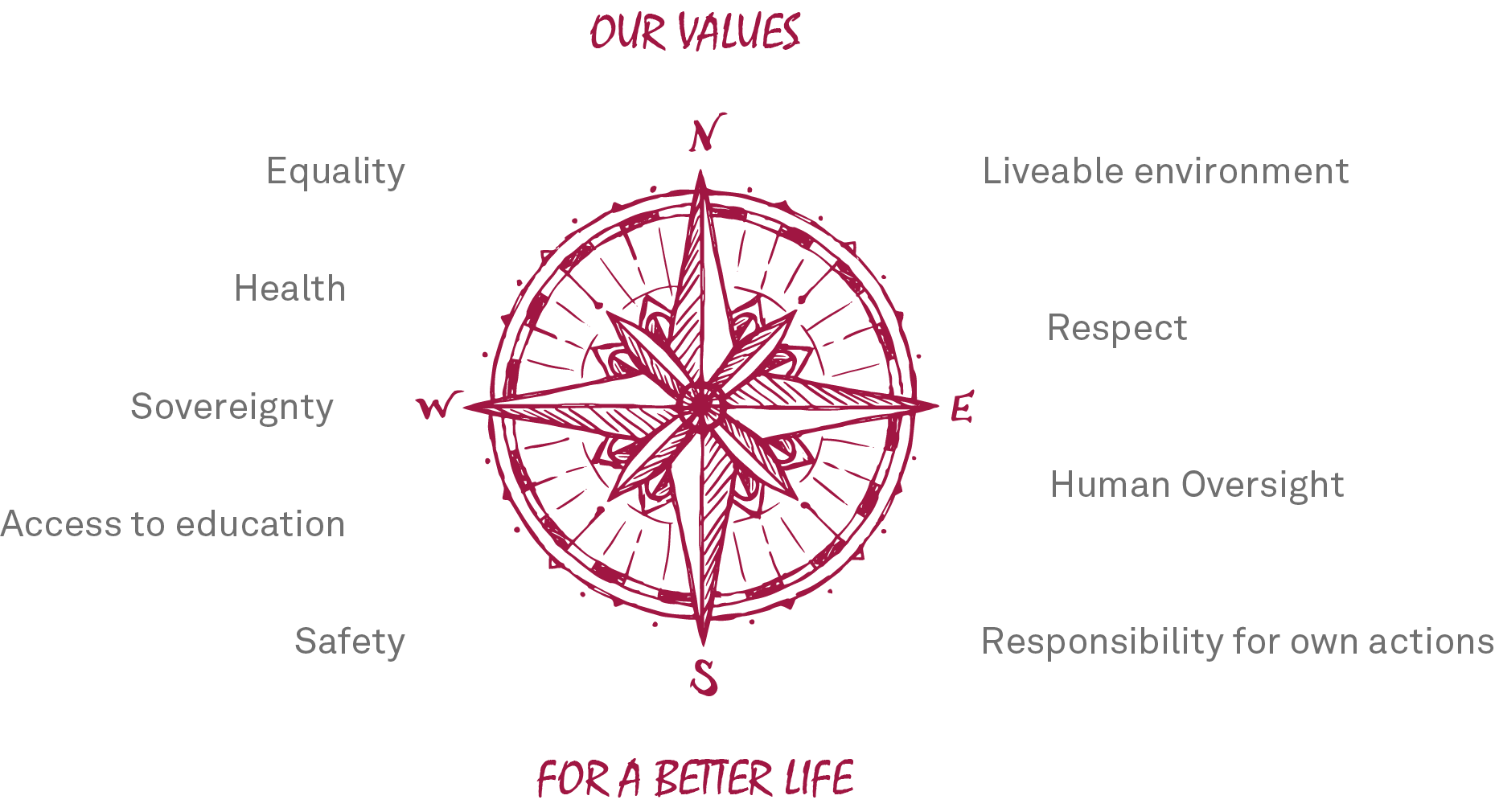Digital Humanism
As a pioneer of digitalization, we support leading companies on their journey towards the digital world. Our strong European roots and values are the foundation of our approach, ensuring that digitalization benefits people and the environment and expands possibilities for development and growth.
Therefore, we base our work on the principles of digital humanism.
In everything we do, we pay attention to
- WHAT the benefits and impact on society are,
- and HOW solutions can be implemented in accordance with ethical values.
Our vision is to bring digital technologies and benefits into harmony with humanity, thereby making a positive contribution to society.
Our clients, partners, and employees can rely on us to uphold these principles.
On this important path, we are constantly learning and striving to improve every day. We seek to learn from the experiences of others, apply scientific insights, adhere to recognized standards, and invite all our employees to contribute their ideas and actively shape our implementation of digital humanism.
Our values according to the principles of digital humanism
Digitization (only) for the sake of digitization is the wrong approach. Therefore, we work on projects, products, and solutions where digitization is used for the benefit of people in accordance with our values.
We reject initiatives that contradict this principle. Our clients can rely on this commitment.
Technology serves people, not the other way around.

Subscribe to the podcast "Digital humanism in practice"
This german-speaking podcast builds a bridge between the philosophy of digital humanism and its successful implementation in companies and public organizations. Experts from business, science and politics share their experiences and ideas to give impulses for a human-centered digitalization. The focus is on creating a competitive advantage and shaping Europe's digital future. The podcast is aimed at listeners who can actively participate in achieving these goals and help shape them.






